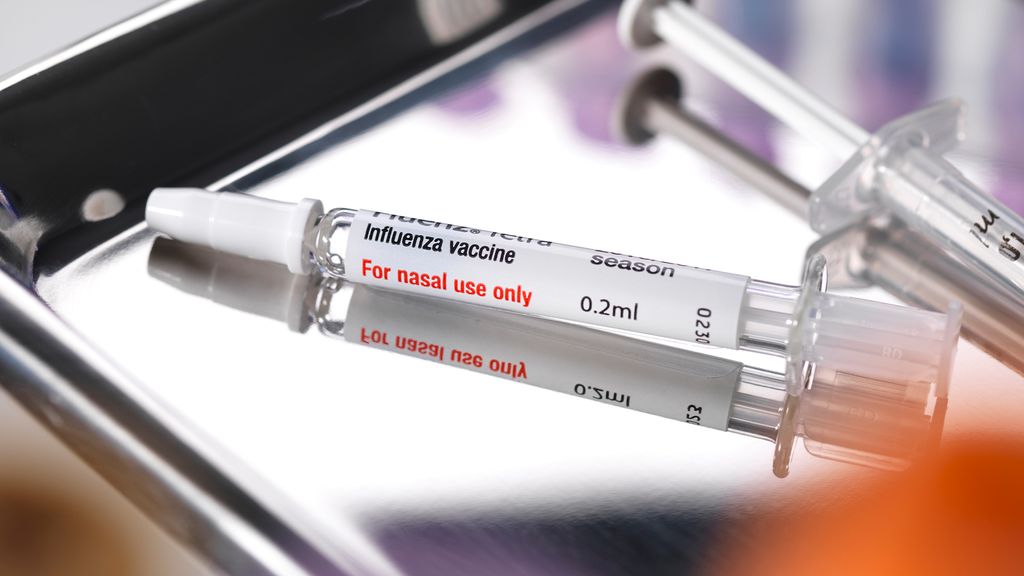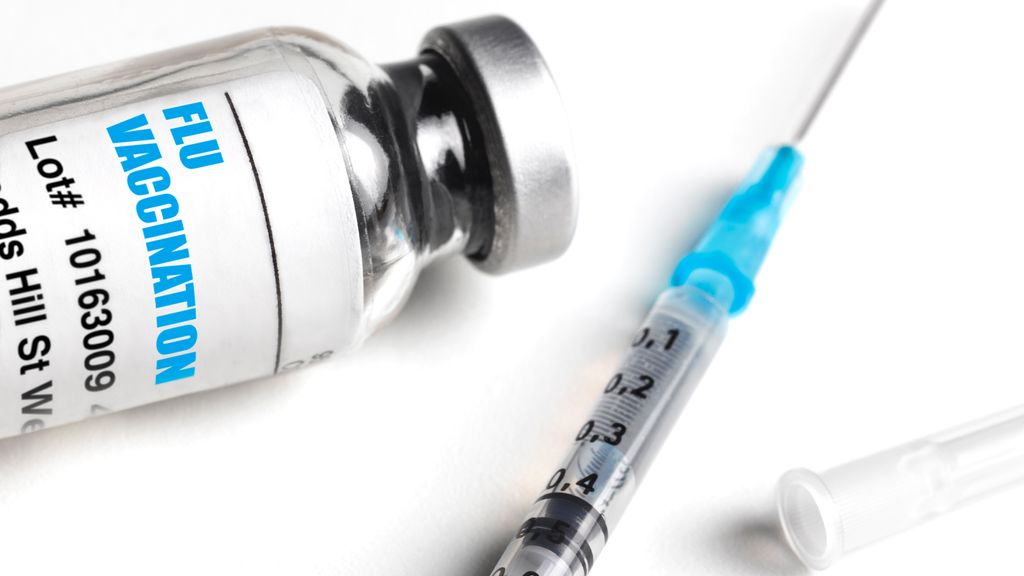When should you get a flu shot, and which shot should people with egg allergies get? Here's CDC guidance for the 2023-2024 flu season.
Flu shots for the United States' 2023-2024 influenza season are now available. But when's the best time to get the vaccine, and who should get one?
Here's a rundown of what you need to know about this season's flu vaccines.
Who should get a flu shot?
Everyone ages 6 months and older should get a flu shot every season, with rare exceptions, the Centers for Disease Control and Prevention (CDC) recommends.
These exceptions apply to people with severe, life-threatening allergies to specific vaccine ingredients. These potentially allergy-triggering ingredients include gelatin, which is used as a stabilizer in some vaccines, and certain antibiotics, which prevent bacterial contamination during vaccine manufacturing but can linger in very small quantities in some shots post-production, according to the Children's Hospital of Philadelphia.
People who have had a severe allergic reaction to a flu vaccine should not get the same type of vaccine again and should consult a doctor about whether to get a different shot, the CDC says. People with a history of Guillain-Barré Syndrome, a rare paralyzing condition in which the immune system attacks the nerves, should also consult a doctor before getting a flu shot.
But everyone else can assume they should get a shot. Flu shots are especially important for people who are older than 65, younger than 2, pregnant, or have very recently given birth, the CDC states. Note that some children ages 6 months to 8 years are recommended to get two doses of vaccine.
When do you get a flu shot?
Most people should get a flu shot in September or October, before the flu starts circulating widely, the CDC advises. In a typical season, flu cases start to ramp up in late October and peak between December and February. Although it's ideal to get your flu shot early in the season, it's better to get one late than not at all.

The nasal spray is one of nine different flu vaccines available. (Image credit: Getty Images)
What types of flu shots are available?
There are nine different flu vaccines available this season, including eight that are injected and one that's sprayed up the nose. All the vaccines guard against four influenza virus subtypes: A(H1N1), A(H3N2), a Yamagata lineage influenza B virus and a Victoria lineage influenza B virus.
Speak to a doctor, pharmacist or other health care professional if you have questions about which flu shot is best for you.
Standard-dose, inactivated flu shots: Inactivated flu shots contain influenza viruses that have been "killed" so they can no longer infect cells. They are approved for use in people ages 6 months and older.
Recombinant flu shots: Recombinant flu shots are made using "recombinant technology," which involves using flu virus genetic material to make a protein found on the virus' surface — hemagglutinin (HA). There is one recombinant vaccine available called Flublok Quadrivalent, and it's approved for use in people ages 18 and older. It's one of three vaccine options especially recommended to people 65 years and older.
Nasal spray: The one vaccine that's available as a nasal spray is called FluMist Quadrivalent. It's a live attenuated vaccine, meaning it contains weakened flu viruses that can't cause disease but have not been "killed," like the viruses in inactivated shots. This vaccine is approved for most people ages 2 to 49, but it's not approved for people who are pregnant, have weakened immune systems or have certain other conditions.
High-dose and adjuvanted flu shots: One high-dose flu vaccine and one adjuvanted vaccine, which contains an added ingredient to rev up the immune system, are approved for use in people 65 and older. Along with the recombinant shot, these vaccines are especially recommended for older people because they're more protective in this age group than the standard-dose vaccines. The high-dose shot is called Fluzone High-Dose Quadrivalent and the adjuvanted vaccine is called Fluad Quadrivalent.
Which flu shot should people with egg allergies get?
People with egg allergies can receive any flu shot, egg-based or otherwise, and they don't need a special doctor's appointment to do so, the CDC says. This advice is based on new guidance from a CDC vaccine advisory committee that recently reviewed the available safety data.

Use the CDC's VaccineFinder to search for flu shot administration sites in your area. (Image credit: Peter Dazeley/Getty Images)
"Egg allergy alone necessitates no additional safety measures for influenza vaccination beyond those recommended for any recipient of any vaccine, regardless of severity of previous reaction to egg," the committee advised. All vaccines should be given in settings where allergic reactions can be recognized and treated quickly, according to the new guidance.
When will we know if the flu shots are a "good match"?
We typically don't know if the flu shots are a "good match" to circulating strains until later in the season. In 2022, for example, officials announced in December that the flu shots were likely a "very good match." A good match would mean that the flu strains included in the vaccines, which are selected ahead of time, will end up being genetically similar to the strains that actually make people sick during the 2023-2024 season.
Vaccine makers decide which flu strains to include in shots for the upcoming season by checking which strains are circulating elsewhere in the world. The Northern Hemisphere and Southern Hemisphere flu seasons happen at different times, so flu virus samples collected in one hemisphere can provide the other clues as to what's to come.
Where can you get a flu vaccine?
Use the CDC's VaccineFinder to search for flu shot administration sites in your area.
This article is for informational purposes only and is not meant to offer medical advice.
- Adenman and Karlston
-

 2
2



Recommended Comments
There are no comments to display.
Join the conversation
You can post now and register later. If you have an account, sign in now to post with your account.
Note: Your post will require moderator approval before it will be visible.